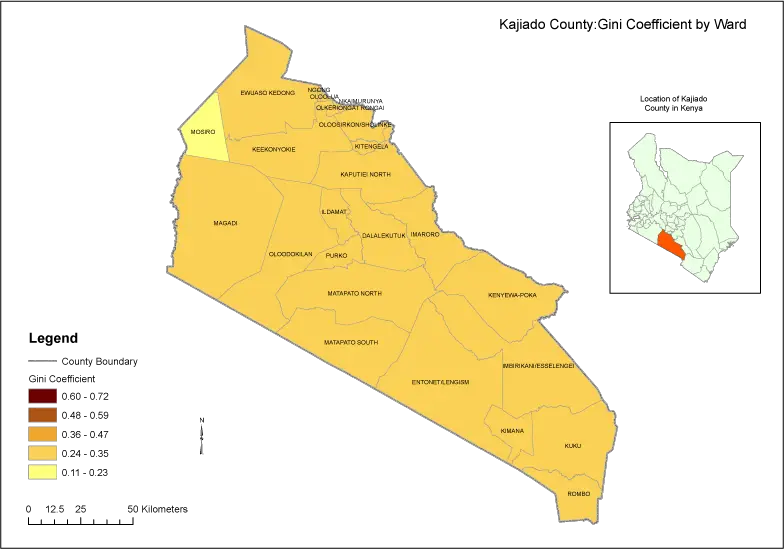Imagine escaping the hustle and bustle of city life and finding yourself immersed in the tranquility of nature. Welcome to Kajiado County, a hidden gem in Kenya that promises breathtaking landscapes and unforgettable experiences. Located in the southern part of the country, this captivating region boasts stunning national parks, picturesque mountains, and vibrant Maasai culture. Whether you’re seeking thrilling wildlife encounters, serene hiking trails, or cultural immersion, Kajiado County has it all. Get ready to embark on a journey that will leave you in awe of the beauty that Kenya has to offer.
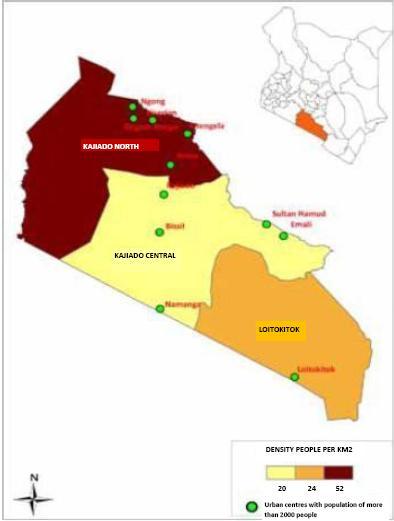
This image is property of opencounty.org.
Geography
Location
Kajiado County is located in the southern part of Kenya, bordering Tanzania to the south. It is situated at the geographical coordinates of 2.3°S latitude and 36.8°E longitude. The county covers an area of approximately 21,292 square kilometers, making it one of the largest counties in Kenya.
Topography
The topography of Kajiado County is characterized by a mix of plains, hills, and plateaus. The Great Rift Valley runs through the western part of the county, creating a stunning landscape surrounded by volcanic hills and mountains. The Ngong Hills, with their breathtaking views, are a prominent feature of the county and a popular tourist attraction. In the eastern part of Kajiado, the plains extend towards the Amboseli National Park, offering a diverse range of landscapes within the county.
Vegetation
Kajiado County boasts a wide variety of vegetation, thanks to its diverse topography and climate. In the highland areas, you can find lush forests teeming with indigenous trees and plant species. As you move towards the plains, the vegetation transitions to savannah grasslands, providing ideal grazing land for livestock. The county is also home to several acacia species, which are well-adapted to the arid and semi-arid environments. The unique flora of Kajiado County contributes to its natural beauty and supports a rich ecosystem.
History
Pre-Colonial Era
Before the arrival of European colonizers, Kajiado County was inhabited by various indigenous communities. The Maasai people, renowned for their rich cultural heritage, were the dominant ethnic group in the region. They practiced pastoralism, rearing livestock such as cattle, sheep, and goats. The Maasai maintained a harmonious relationship with the land, respecting natural resources and preserving the environment.
Colonial Era
During the colonial era, Kajiado County, like the rest of Kenya, came under British rule. The Maasai, a fiercely independent community, resisted the colonial forces but eventually had to adapt to the changing socio-economic landscape. The establishment of ranches by European settlers led to the displacement of Maasai communities from their ancestral lands. Subsequently, the county became a center for large-scale commercial ranching, which shaped its economy and land use patterns.
Post-Independence
Following Kenya’s independence in 1963, Kajiado County experienced significant changes. The Maasai people reclaimed some of their ancestral lands, and efforts were made to improve their socio-economic conditions. The county has witnessed infrastructural development, improved access to education and healthcare, and economic diversification. Today, Kajiado County is a melting pot of different cultures and a symbol of Kenya’s post-independence progress.
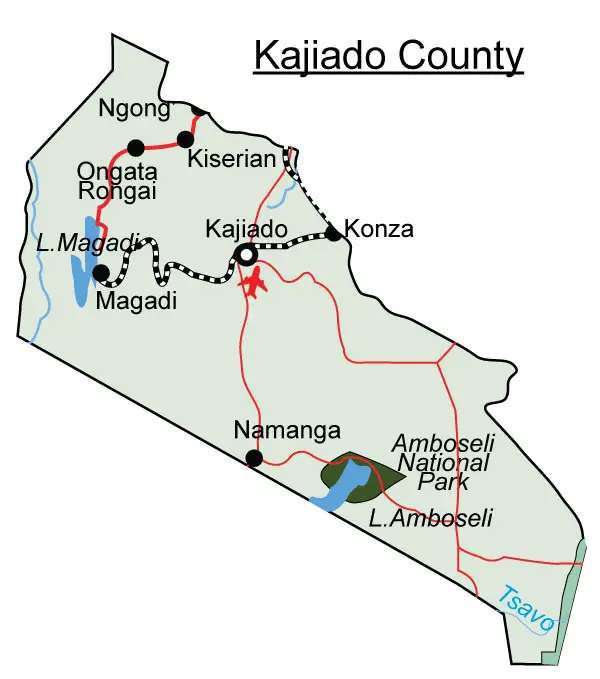
This image is property of elimufeynman.s3.amazonaws.com.
Demographics
Population
Kajiado County has a growing population that currently stands at around 1.2 million people. The county’s population has been steadily increasing over the years due to factors such as natural population growth and migration from other parts of Kenya in search of better opportunities. The diverse population contributes to the county’s vibrant cultural mosaic and dynamic economy.
Ethnic Groups
Kajiado County is home to various ethnic groups. The Maasai community is the largest ethnic group, known for its distinctive culture and traditions. Other ethnic groups, such as the Kikuyu, Kamba, and Luo, among others, also reside in the county, adding to its cultural diversity. The coexistence of different ethnic groups fosters cultural exchange, tolerance, and mutual understanding.
Languages
The primary languages spoken in Kajiado County are Maasai, Swahili, and English. Maasai, a Nilotic language, is widely spoken by the Maasai community and serves as a crucial aspect of their cultural identity. Swahili, a national language in Kenya, is spoken by people from different ethnic backgrounds and serves as a lingua franca. English is the official language and is used for administration, education, and formal communication.
Government
County Executive
Kajiado County has a devolved system of government, with an elected County Governor leading the executive arm. The County Governor, along with other elected officials, is responsible for formulating and implementing policies, ensuring proper governance, and delivering services to the residents. The County Executive plays a pivotal role in the socio-economic development and overall well-being of the county.
County Assembly
The County Assembly of Kajiado County is the legislative body responsible for making laws, overseeing government activities, and representing the interests of the residents. It consists of elected Members of County Assembly (MCAs) who are elected by the people to voice their concerns and participate in decision-making processes. The County Assembly serves as a platform for democratic governance and ensures accountability and transparency.
Sub-Counties
Kajiado County is divided into several sub-counties, each with its own administrative structure and leadership. The sub-counties include Kajiado East, Kajiado North, Kajiado West, Loitokitok, Mashuuru, and Namanga. These sub-counties play a crucial role in the governance and development of the county, ensuring that public services are accessible to all residents, regardless of their location.
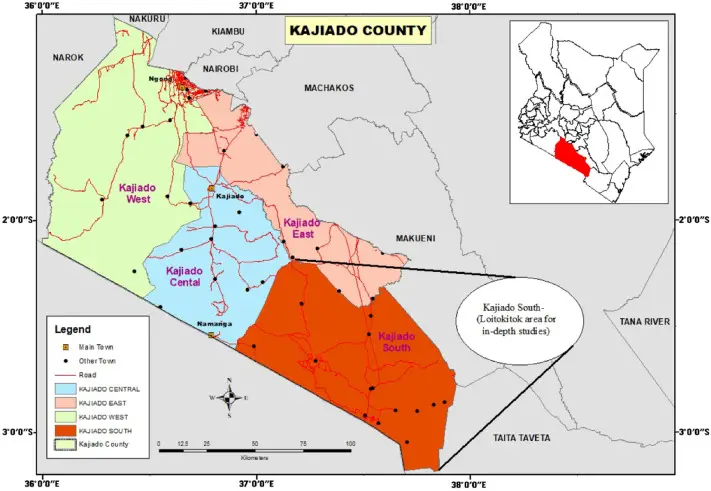
This image is property of ars.els-cdn.com.
Economy
Agriculture
Agriculture is a vital sector of Kajiado County’s economy, employing a significant portion of the population and contributing to food security. The county’s favorable climate and fertile soils support the cultivation of crops such as maize, beans, potatoes, and vegetables. The Maasai community, known for their livestock rearing practices, engages in pastoralism, providing a sustainable source of income and livelihood for many households.
Tourism
Kajiado County is blessed with numerous tourist attractions that draw visitors from all over the world. The Amboseli National Park, located within the county, offers awe-inspiring views of Mount Kilimanjaro, Africa’s highest peak, and diverse wildlife, including elephants, lions, and giraffes. The Olorgesailie Prehistoric Site showcases archaeological findings that provide insights into mankind’s early history. Additionally, the picturesque Ngong Hills, with their hiking and scenic trails, attract outdoor enthusiasts and nature lovers.
Manufacturing
The manufacturing sector in Kajiado County has been growing steadily, contributing to the county’s economic development. Small and medium-scale industries have emerged, manufacturing products such as textiles, building materials, and food products. The county’s proximity to Nairobi, the capital city, provides easy access to markets and transportation networks, further boosting the manufacturing sector’s growth.
Infrastructure
Transportation
Kajiado County is well-connected to major transportation networks. The county is traversed by the busy Nairobi-Mombasa Highway, which facilitates the movement of goods and people. Additionally, the county is served by an extensive road network, linking its various towns, trading centers, and tourist attractions. Public transportation, in the form of buses and matatus (minibusses), is readily available, ensuring convenient travel within the county.
Education
Education plays a crucial role in the socio-economic development of Kajiado County. The county boasts a broad range of educational institutions, including primary and secondary schools, vocational training centers, and tertiary institutions. These institutions provide quality education and equip students with the skills necessary to thrive in various fields. Efforts have also been made to enhance access to education, especially for marginalized communities, promoting inclusivity and equal opportunities.
Healthcare
Kajiado County has made significant strides in improving healthcare services for its residents. The county is home to several healthcare facilities, including hospitals, health centers, and dispensaries. These facilities offer a range of medical services, including preventive care, maternity services, and emergency care. Efforts have been made to promote community health education, disease prevention, and the provision of essential medicines, ensuring the well-being of the county’s population.
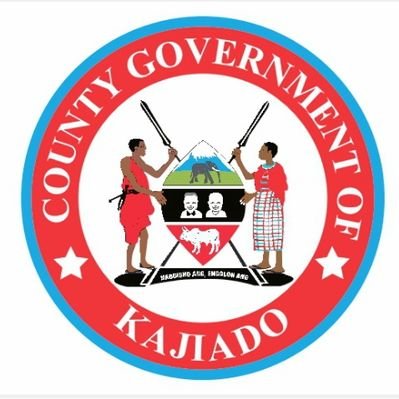
This image is property of pbs.twimg.com.
Culture and Society
Traditional Practices
The Maasai culture is deeply rooted in Kajiado County and has been preserved through generations. The Maasai people take pride in their traditional practices, including pastoralism, beadwork, and ceremonial rituals. The county provides a platform for cultural exchange, where traditional practices are celebrated and preserved, promoting cultural diversity and fostering unity among the various ethnic groups residing in the county.
Religion
Religion plays a significant role in the lives of the residents of Kajiado County. Christianity is the predominant religion, with various denominations represented. Islam also has a considerable following, particularly among the Muslim community. Religious institutions such as churches and mosques are vital community centers, serving as places of worship, social gatherings, and platforms for community outreach and development.
Education
Education is highly valued in Kajiado County, with both formal and informal learning opportunities available. The county boasts a rich educational heritage, with schools and institutions that promote academic excellence. Beyond formal education, the county values traditional knowledge and practices, ensuring their preservation through cultural education programs. Access to quality education and the celebration of cultural diversity enrich the county’s social fabric.
Tourist Attractions
Amboseli National Park
Located in the heart of Kajiado County, Amboseli National Park is a must-visit destination for nature and wildlife enthusiasts. The park offers spectacular views of Mount Kilimanjaro and is known for its large herds of elephants, as well as other wildlife such as lions, cheetahs, and zebras. Visitors can enjoy game drives, birdwatching, and guided nature walks, immersing themselves in the beauty of Africa’s diverse ecosystems.
Olorgesailie Prehistoric Site
For history lovers and archaeology enthusiasts, the Olorgesailie Prehistoric Site offers a fascinating journey into the past. The site contains numerous artifacts and fossils dating back hundreds of thousands of years, providing valuable insights into early human life and evolution. Guided tours and interpretive centers enable visitors to learn about the site’s significance and the discoveries made by scientists.
Ngong Hills
The Ngong Hills, situated on the outskirts of Nairobi, offer breathtaking panoramic views and exciting hiking opportunities. With their scenic trails, the hills attract locals and tourists alike, providing a rejuvenating escape from the city’s hustle and bustle. The hills are a hotspot for outdoor activities such as picnicking, birdwatching, and photography, attracting nature enthusiasts and adventurers.
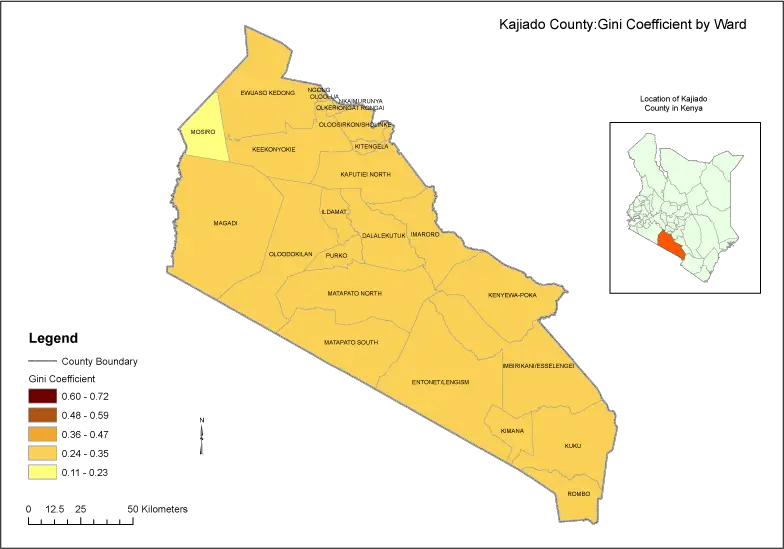
This image is property of inequalities.sidint.net.
Challenges and Opportunities
Environmental Issues
Kajiado County faces various environmental challenges, including deforestation, soil erosion, and wildlife-human conflict. Deforestation, driven by the demand for firewood and land clearance, threatens the county’s biodiversity and contributes to climate change. Soil erosion poses a risk to agricultural productivity, necessitating sustainable land management practices. Wildlife-human conflict arises from the encroachment of human settlements and agriculture on wildlife habitats, demanding innovative approaches to ensure coexistence.
Youth Unemployment
Like many parts of Kenya, Kajiado County faces the challenge of youth unemployment. The rapid population growth, limited job opportunities, and skills mismatch contribute to this issue. However, the county also presents opportunities for entrepreneurship and self-employment, particularly in sectors like agriculture, manufacturing, and tourism. By investing in skills training, facilitating access to financing, and promoting a conducive business environment, Kajiado County can harness its potential and empower its youth.
Investment Potential
Kajiado County offers significant investment potential in various sectors. Its favorable climate supports agriculture and agribusiness ventures, while the growing tourism industry presents opportunities for hospitality, eco-tourism, and related services. The manufacturing sector has ample room for growth, benefiting from the county’s strategic location and access to major markets. By attracting local and foreign investments, Kajiado County can spur economic development, create employment opportunities, and improve the standard of living for its residents.
Conclusion
Summary
Kajiado County, located in southern Kenya, boasts a rich cultural heritage, diverse natural landscapes, and a vibrant economy. Its distinctive topography, including the Great Rift Valley and the Ngong Hills, offers breathtaking views and exciting outdoor activities. The Maasai community, with its traditional practices and pastoralist lifestyle, adds to the county’s cultural diversity. The county government plays a crucial role in promoting development, providing essential services, and ensuring good governance.
Future Prospects
With its growing population and economic potential, Kajiado County is poised for further development and prosperity. Investments in infrastructure, education, healthcare, and tourism can unlock new opportunities and improve the quality of life for its residents. By addressing environmental challenges, empowering the youth, and attracting investments, Kajiado County can chart a path towards sustainable development and become a model county in Kenya.

